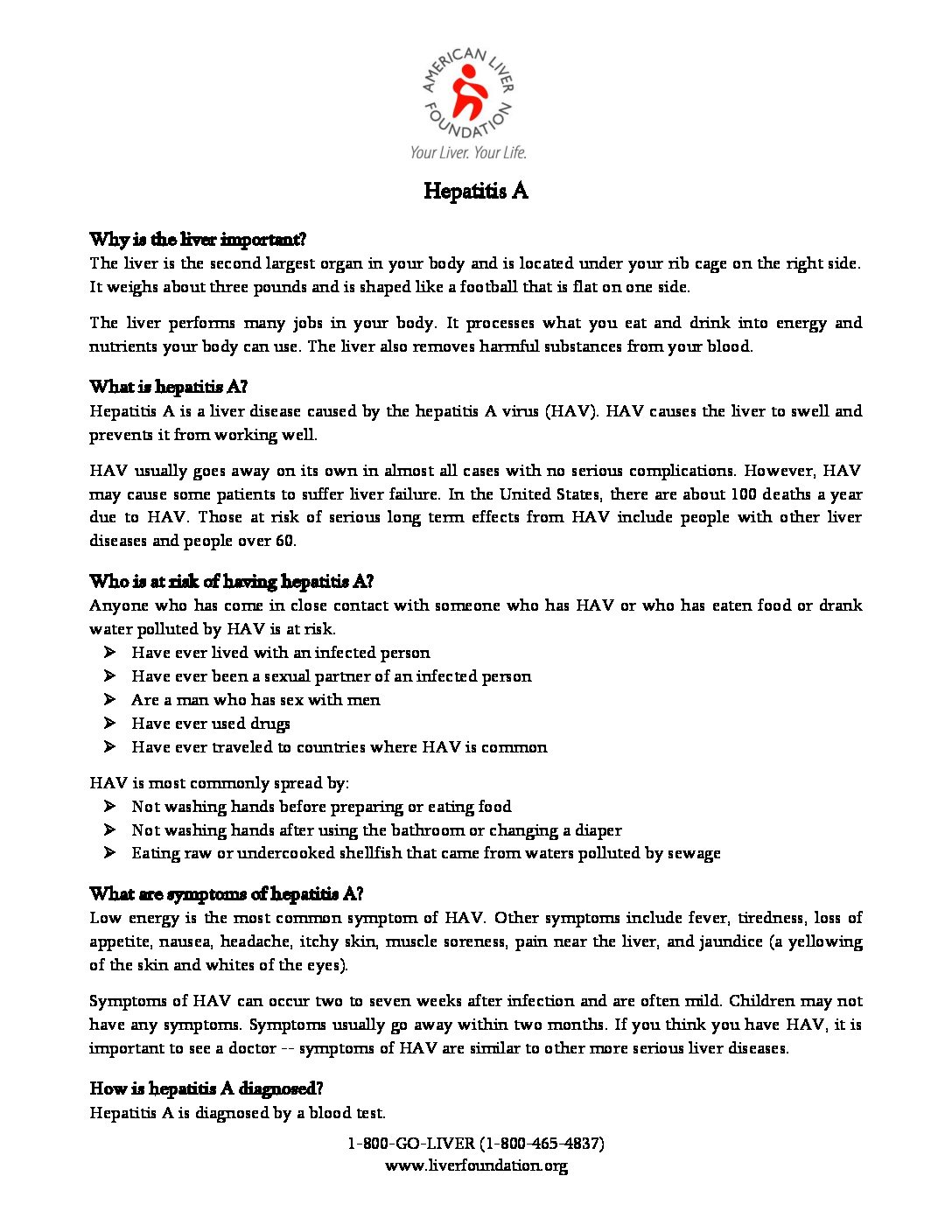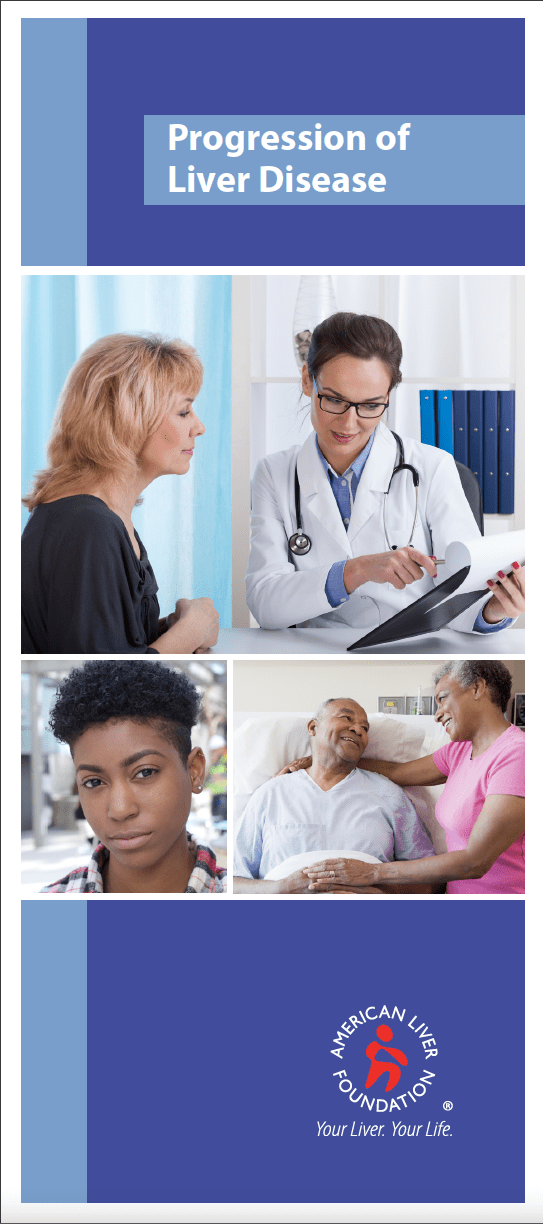Feature Blog Article
Giving a Voice to the LGBTQ+ Community

Hepatitis A is a liver disease caused by the hepatitis A virus (HAV). HAV causes the liver to swell and prevents it from working well.
HAV usually goes away on its own in almost all cases with no serious complications. However, HAV may cause some patients to suffer liver failure. In the United States, there are about 100 deaths a year due to HAV. Those at risk of serious long term effects from HAV include people with other liver diseases and people over 60.
- Hepatitis A rates in the United States have declined by more than 95% since Hepatitis A vaccine first became available in 1995.
- Symptoms of Hepatitis A usually last less than 2 months.
Who is at risk of having hepatitis A?
Anyone who has come in close contact with someone who has HAV or who has eaten food or drank water polluted by HAV is at risk.
- Have ever lived with an infected person
- Have ever been a sexual partner of an infected person
- Are a man who has sex with men
- Have ever used drugs
- Have ever traveled to countries where HAV is common
HAV is most commonly spread by:
- Not washing hands before preparing or eating food
- Not washing hands after using the bathroom or changing a diaper
- Eating raw or undercooked shellfish that came from waters polluted by sewage
What are the symptoms of the hepatitis A virus?
Low energy is the most common symptom of HAV. Other symptoms include fever, tiredness, loss of appetite, nausea, headache, itchy skin, muscle soreness, pain near the liver, and jaundice (a yellowing of the skin and whites of the eyes).
Symptoms of HAV can occur two to seven weeks after infection and are often mild. Children may not have any symptoms. Symptoms usually go away within two months. If you think you have HAV, it is important to see a doctor — symptoms of HAV are similar to other more serious liver diseases.
How is hepatitis A diagnosed?
Hepatitis A is diagnosed by a blood test.
A blood test is done to see if HAV antibodies are in the body. Antibodies are proteins created by the immune system in response to viruses.
How is hepatitis A treated?
HAV usually goes away on its own within six months.
Doctors often recommend bed rest, drinking lots of fluids, eating a healthy diet and avoiding alcohol. Medicines are not used to treat HAV. Talk to your doctor before taking prescription or over-the-counter drugs, vitamins or herbal supplements.
Itchy skin caused by HAV can be treated with non-prescription anti-itch medicine.
It is important to see your doctor regularly to make sure your body has fully recovered from the virus. Also, talk to your doctor about getting vaccinated for hepatitis B.
What’s the best way to stop the spread of hepatitis A?
Hepatitis A vaccination is the best way to prevent hepatitis A. The hepatitis A vaccine is given in 2 doses, usually about 6 months apart.
Other ways to stop the spread of HAV are:
- Always washing your hands with soap and warm water immediately after using the bathroom or changing a diaper
- Always washing your hands with soap and warm water before preparing or eating food
Who should be vaccinated against hepatitis A?
Those who should get vaccinated against HAV include:
- All children at age 1
- All children above age 1 who live in areas where HAV is common
- People with long-term liver disease
- People with blood-clotting disorders
- People who have had or are waiting for a liver transplant
- People who use drugs
- Men who have sex with men
- Travelers to countries where HAV is common
- Sexual partners and household members of people with HAV
If you think you have come in contact with HAV, your doctor may give you a HAV vaccination or a shot of immune globulin, which can help increase protection to HAV.
- What kinds of medications can I take for my fever?
- Are there anti-nausea medications I should be taking?
- Do I need to be re-vaccinated against Hepatitis A?
- Should I receive a booster vaccine for Hepatitis B?
- Am I contagious? How can I notify people that I may have been in close contact with?

There are many different types of liver disease. But no matter what type you have, the damage to your liver is likely to progress in a similar way.
Whether your liver is infected with a virus, injured by chemicals, or under attack from your own immune system, the basic danger is the same – that your liver will become so damaged that it can no longer work to keep you alive.
Cirrhosis, liver cancer, and liver failure are serious conditions that can threaten your life. Once you have reached these stages of liver disease, your treatment options may be very limited.
That’s why it’s important to catch liver disease early, in the inflammation and fibrosis stages. If you are treated successfully at these stages, your liver may have a chance to heal itself and recover.
Talk to your doctor about liver disease. Find out if you are at risk or if you should undergo any tests or vaccinations.
Clinical trials are research studies that test how well new medical approaches work in people. Before an experimental treatment can be tested on human subjects in a clinical trial, it must have shown benefit in laboratory testing or animal research studies. The most promising treatments are then moved into clinical trials, with the goal of identifying new ways to safely and effectively prevent, screen for, diagnose, or treat a disease.
Speak with your doctor about the ongoing progress and results of these trials to get the most up-to-date information on new treatments. Participating in a clinical trial is a great way to contribute to curing, preventing and treating liver disease and its complications.
Start your search here to find clinical trials that need people like you.
Last Updated on May 13, 2021
Share this page









